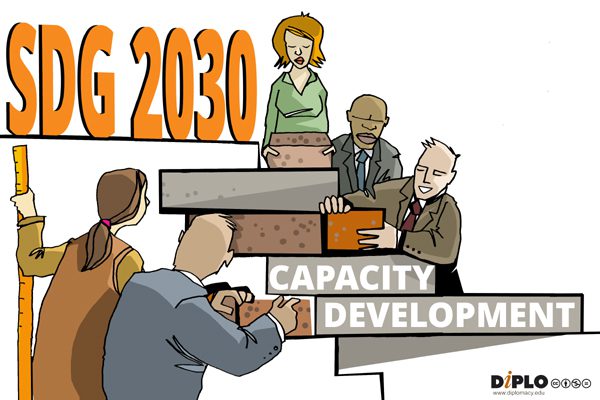
DiploNews – Issue 386 – 9 January 2020
Upcoming study opportunities
Capacity Development course

- Understand capacity development and how it relates to culture, context, and the sustainable development goals
- Assess existing capacity, capacity needs, and change readiness
- Work with stakeholders
- Formulate capacity goals, objectives, and indicators
- Plan and implement a capacity development initiative, using effective tools and methods
-
Measure the results of a capacity development initiative in a way that fosters learning
Apply NOW if you are:
- A capacity development practitioner or researcher
- A development professional who wants to implement capacity development in your work
- A diplomat responsible for development co-operation
- A student or professional interested in moving into, or gaining more understanding of, the development field
The course is facilitated by capacity development professionals with decades of experience working in the field, around the world. It is delivered in an interactive online classroom, with weekly readings, discussions, and short, practical assignments that will help you apply what you learn directly to your daily work.
The next session starts on 17 February 2020 and the application deadline is 20 January 2020. Please visit the course webpage to read more and apply.
Humanitarian Diplomacy Diploma course
Apply now for the next session of the popular online course Humanitarian Diplomacy, offered in co-operation with the International Federation of Red Cross and Red Crescent Societies (IFRC). This highly interactive 13-week course, led by Ambassador Christopher Lamb and a team of experienced practitioners, extends the knowledge base and develops practical skills of current and future practitioners in humanitarian diplomacy and policy. The course familiarises participants with basic definitions, concepts, actors, and institutions in the field of humanitarian diplomacy; introduces international humanitarian law; hones advocacy and negotiation skills; develops participants’ research skills; and, increases their understanding of national and regional humanitarian diplomacy activities. The course is offered in English; however, participants have the option of writing and submitting major course assignments and the final research paper in French or Spanish. The next session starts on 17 February 2020 and the application deadline is 20 January 2020. Please visit the course webpage to read more and apply.
February 2020 online diplomacy courses
Start the new year with one of our most popular online courses:
- Diplomatic Theory and Practice
- Public Diplomacy
- Introduction to Internet Governance
Apply by 13 January 2020 for Diplo certificate courses. For further information or to apply, click on the titles of the courses listed, or visit our courses webpage. Register now to reserve your place.
Malta scholarships
Thanks to support from the government of Malta, partial scholarships are available for applicants from developing countries to attend upcoming Diplo online courses. These scholarships cover 30%–60% of course fees and can be applied to most online courses in 2020. Browse our course catalogue and contact us at admissions@diplomacy.edu for further information. You can also sign up for our courses mailing list to be informed about upcoming courses.
Upcoming events
[Briefing] Internet governance in January 2020
What were the main Internet governance updates in January? How will recent updates influence the developments in upcoming months? Join us for our next monthly briefing, Tuesday, 28th January, at 12:00 UTC (13:00 CET), for a round-up of the major global IG and digital policy developments. Remember to register for the event.
Past events
HumAInism and Artificial intelligence

What’s been happening in Diplo’s blogosphere
Diplo’s Katharina Höne sums up the November [WebDebate] The diplomacy of natural resources in the Middle East which discussed the diplomacy of natural resources in the Middle East. In particular, the debate focused on water in the Middle East and conflict and co-operation around this scarce resource. Nadav Tal, water officer and Jordan Valley field co-ordinator at EcoPeace, and Lutine F. de Boer, senior advisor on environmental policy, urban planning, and water for the Dutch regional government took part in the debate.
In Regulating the Magic of Technology in the 2020s? Diplo’s Director Jovan Kurbalija writes about emerging technology and technological progress and the challenges that come with it. Kurbalija says that ‘ It will be a whirlwind year, and one during which humanity needs as a matter of great urgency to agree on crucial questions of future digital governance, especially in the field of AI.’


